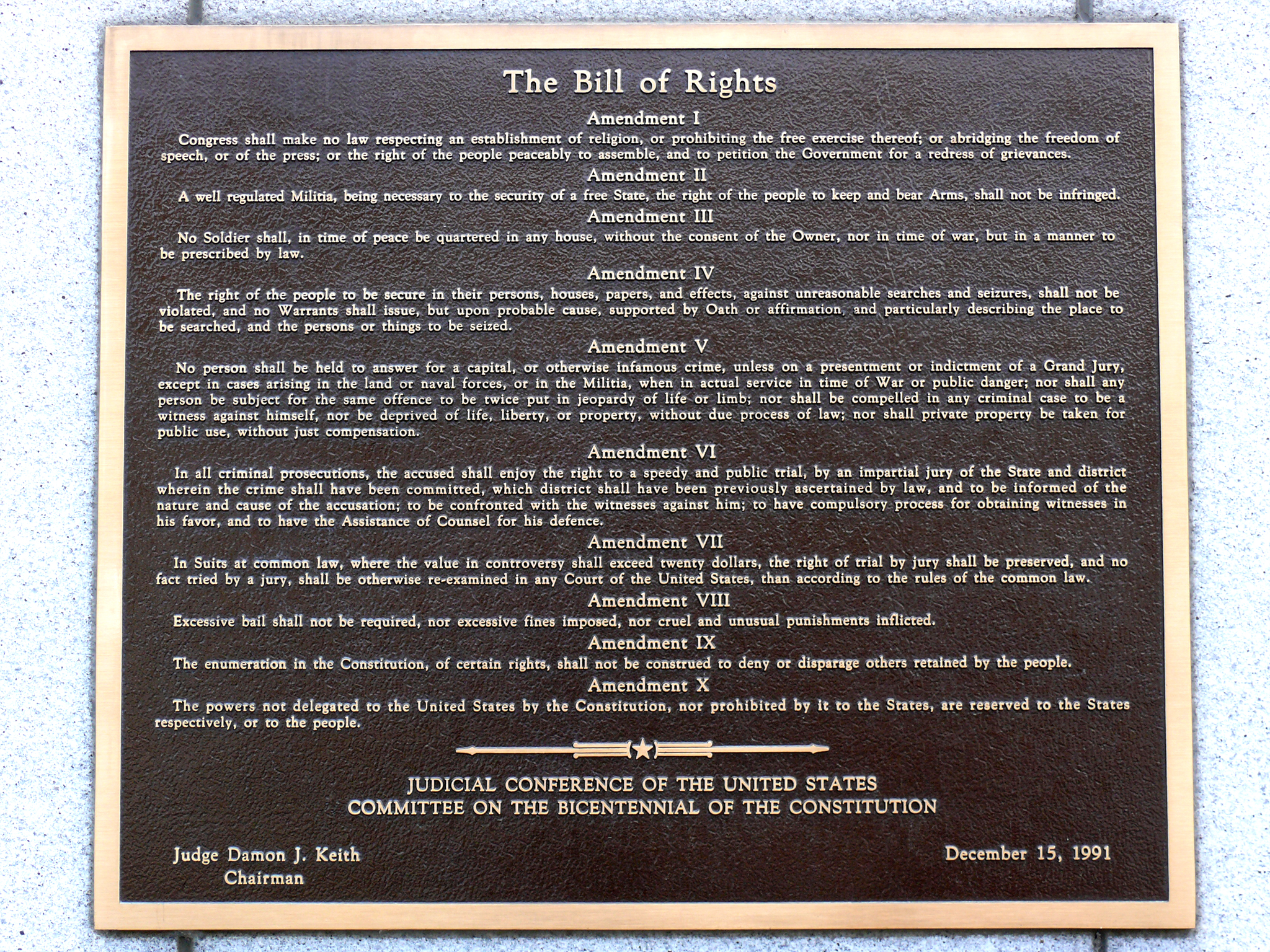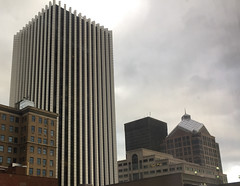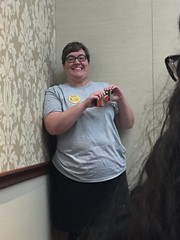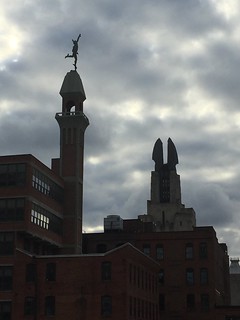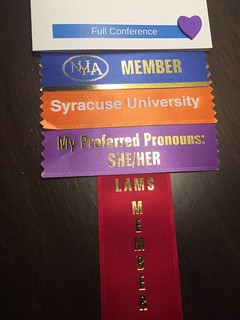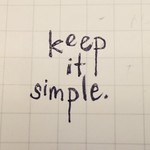 I always feel as if I should do a year-end blog post that wraps up the year. So here it goes.
I always feel as if I should do a year-end blog post that wraps up the year. So here it goes.Copyright
These are the stories which stand out to me and the Digitization 101 blog posts which go with them.- The Public Domain is About to Get Bigger on January 1 - Beside the public domain getting bigger, this also means that I and others can't automatically refer to the 1923 date. That may be take a little getting used to!
- Music Modernization Act - I know there is more for me to learn about this act and so likely more blog posts to come on it. However, here are two from this past year.
- Intellectual Property and the new U.S., Mexico and Canada Trade Agreement (USMCA) - This was written before the act became law and is still relevant.
- Marrakesh Treaty Implementation Act - Providing materials to the print disabled - no matter their physical location - is the correct thing to do.
Do I still blog about digitization? Yes, there were some blog posts about that this year. I should really rename this blog, but too many people know it as Digitization 101.
Research
I announced earlier in December the iSchool Public Libraries Initiative, which began earlier in the year. The number of things we could do keeps growing, which is a happy problem to have. We are not working with individual libraries, but rather want to focus our efforts on research that will help all libraries. Thanks to everyone - too many to name - who has been enthusiastic about this. Thanks also to MSLIS students Heather Elia and Sabrina Unrein, who have been working with me, and to Georgia Westbook, who will begin working with us in January.Conferences
I am blessed every year to be able to attend several conferences in person. This year was no different. Below are those conferences and links to my posts about them.- ALISE 2018 Conference - The next ALISE conference will be in September 2019 in Knoxville, TN.
- Special Libraries Association Upstate NY Chapter Spring Conference - The next Upstate NY Chapter spring conference will be April 12, 2019 in Syracuse, NY.
- Joint Conference of Librarians of Color Conference - The next JCLC will be in 2022.
- New York Library Association Annual Conference - The next NYLA conference will be November 7-10, 2019 in Saratoga Springs, NY. At the 2018 conference, I was honored to have been selected as the 2018 NYLA Dewey Fellow representing the Leadership and Management Section (LAMS). Thank you, LAMS, for your recognition of the work I have done in and for the library community.
Getting Things Done
For several years, I have had a paper-based work journal and a paper to-do list, which I carry everywhere. The work journal contained notes from meetings. The to-do list contained a super long list of work-related items to get done, along with important personal items. I have roughly followed the David Allen Getting Things Done (GTD) methodology, since obtaining the audiobook in 2010 (blog post). Over the years, I've listened to many of the GTD podcasts and tried to implement key parts of the process with moderate success.At JCLC, I went to a standing room only session on using bullet journals (blog post), because I'm interested in anything that could make my to-do list better. The bullet journal combines my to-do list with the journal, and make both more usable. Here are the things I like about the bullet journal:
- It focuses on creating a daily to-do list, which draws items from a separate to-do list for the month. This means that I am focused on what I need to get done today and what I can get done today. If I don't get something done, it is easy to migrate it to the next day, if necessary.
- There is a place to put to-do's that are in the future. GTD would refer to these as the "someday maybe" list. However, these future to-do's are placed in specific months. So I can easily capture, for example, something that is a to-do in April.
- As part of the bullet journal, you create an index, which is built as you use the journal. This is so simple, yet it is something I hadn't thought of!
- The journal becomes a place to collect thoughts on specific ideas or projects, and you can do that in a more organized manner. One suggestion I saw was to start compiling notes on a project at the end of the journal and work forward. So I'm doing that with my notes for the iSchool Public Libraries Initiative. All of my notes are in one spot at the back of my bullet journal.
- I feel more organized, because I am more organized.
- By creating daily to-do lists and capturing information on what I've done in a specific day, it is apparent how much I cannot fit into one day. This was important to re-learn.
Since I began my bullet journal in October, I am not starting a new journal for 2019. However, later today I will review my to-do list and create my to-do list for January 2019, and do some other setup tasks so that I'm ready for January 2. That setup will likely take me 30 minutes and in some ways will be similar to the GTD weekly review.
Reclaiming My Time
In 2017, U.S. Congressional Representative Maxine Waters uttered the words "reclaiming my time" during a Congressional hearing. Those words sparked social media posts and Internet memes. As I think about 2019, those words capture something I need to do; I need to make sure I'm using my time wisely. I need to reclaim time that isn't focused on my goals or top to-do's, and I need to ensure that I have time to relax. With the Internet, 24-hour news cycles, the ability to work (or take classes) at any time, our lives are as if we are all living in New York City - the city that never sleeps. In other words, it is easy to do-do-do, yet we know that taking breaks from "the noisy confusion of life" is necessary.What will this reclaimed time look like? My hope is that work will shift into more normal work hours and time for non-work activities will be when other people are available! (As an academic and consultant, I can tell you that work time can become all the time, and that isn't healthy.) Wish me luck!
Over 14 Years
This blog is over 14 years old with 2,841 posts in total. While I don't blog as incessantly as I did in 2005 (528 posts), I'm please that I added 93 blog posts this year. Blogging here is one constant in my life and something I hope to have more time for in 2019. I want to do more posts again were I'm doing original writing, and not just reporting on what others are doing.Okay, that's my 2018 wrap-up. How was your year?
FTC Disclaimer: Digitization 101 is an Amazon affiliate and receives a small commission if you purchase a product or service from an Digitization 101 Amazon link. (Trust me, I'm not getting rich off of Amazon.)
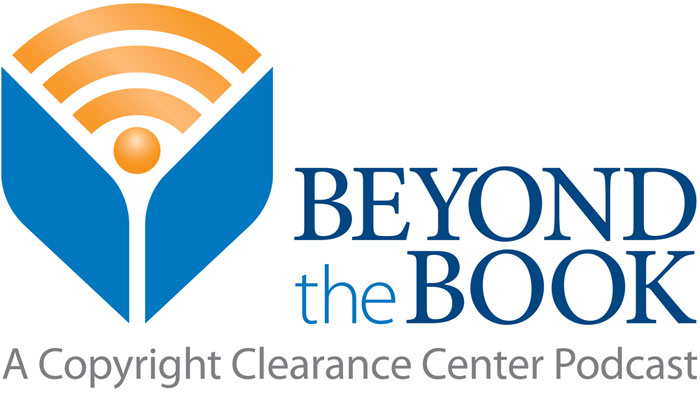

.jpg)


